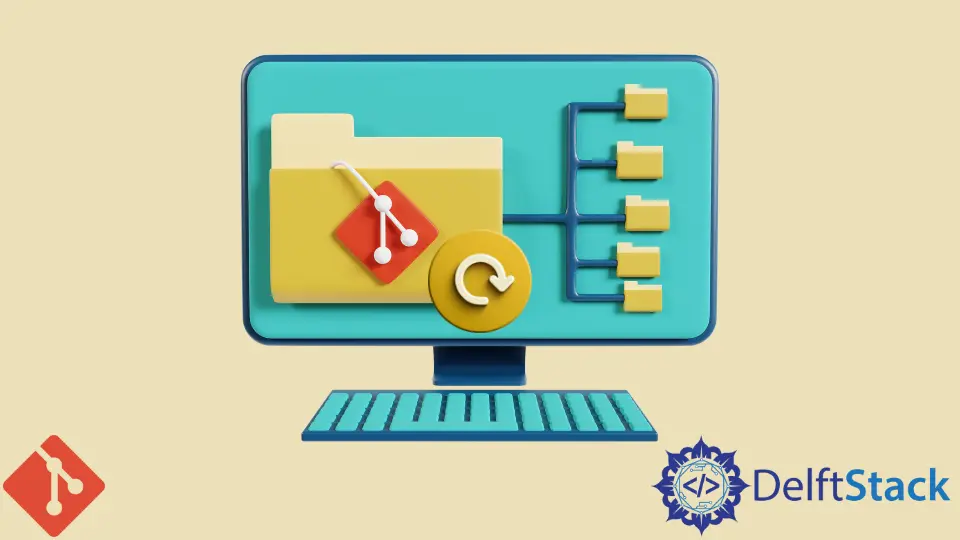How to Clean the Local Working Directory in Git
- Using git clean to Remove Untracked Files
- Discarding Changes with git checkout
- Resetting the Working Directory with git reset
- Cleaning Up with git stash
- Conclusion
- FAQ

Cleaning your local working directory in Git is an essential task for maintaining a tidy and efficient development environment. Over time, your working directory can accumulate untracked files, modified files, and other changes that can clutter your project. This not only makes it challenging to manage your code but can also lead to confusion during collaboration with team members.
In this article, we’ll explore different methods to clean your local working directory using Git commands. Whether you need to remove untracked files, discard changes, or reset your directory to a clean state, we’ve got you covered. Let’s dive into the various techniques that will help you keep your Git workspace organized and efficient.
Using git clean to Remove Untracked Files
One of the most effective ways to clean your local working directory is by using the git clean command. This command allows you to remove untracked files and directories, giving you a fresh slate to work with. You can specify various options to control what gets cleaned. Here’s how to use it:
git clean -f
Output:
Removed untracked file 'example.txt'
Removed directory 'temp/'
The -f flag stands for “force,” which is necessary to execute the cleaning operation. By default, git clean does not remove files to prevent accidental loss of data. You can also use the -d option to remove untracked directories as well. If you want to see what would be removed without actually deleting anything, you can use the -n (or --dry-run) flag:
git clean -n
Output:
Would remove untracked file 'example.txt'
Would remove directory 'temp/'
This command is particularly useful for reviewing what will be deleted before taking action. Remember, once you execute the clean command with the -f option, the files are permanently deleted, so use it with caution.
Discarding Changes with git checkout
Sometimes, you may want to discard changes made to tracked files in your local working directory. The git checkout command can help you revert files back to their last committed state. Here’s how you can do this:
git checkout -- filename.txt
Output:
Reverted changes in 'filename.txt'
By using --, you specify that you want to check out the file, essentially discarding any changes made since the last commit. If you want to revert all modified files in your working directory, you can use:
git checkout -- .
Output:
Reverted changes in all modified files
This command is a powerful way to ensure that your working directory reflects the last commit exactly. However, be cautious: once you discard changes, they cannot be recovered unless you have other backups. Always double-check before executing this command, especially in active projects.
Resetting the Working Directory with git reset
If you need to clean your working directory and also reset your staging area, the git reset command is an excellent option. It allows you to unstage files and revert your working directory to a specific commit. Here’s how to use it:
git reset --hard HEAD
Output:
HEAD is now at 1234567 Commit message
The --hard option tells Git to reset both the staging area and the working directory to match the specified commit—in this case, the latest commit (HEAD). This means all changes will be lost, so it’s important to be sure about this action. If you want to unstage files but keep changes in your working directory, you can use:
git reset HEAD
Output:
Unstaged changes in 'filename.txt'
This command will only unstage your changes while keeping them in your working directory, allowing you to review or modify them further before committing. It’s a flexible way to manage your local changes without losing important work.
Cleaning Up with git stash
Another useful method for cleaning your local working directory is using git stash. This command allows you to temporarily save your changes and clean your working directory without losing any work. Here’s how to stash your changes:
git stash
Output:
Saved working directory and index state WIP on branch-name: 1234567 Commit message
When you run this command, Git saves your changes and reverts your working directory to the last commit. This is particularly helpful when you want to switch branches or pull updates without committing your current work. Later, you can retrieve your stashed changes using:
git stash pop
Output:
Applied stash@{0} and dropped it
This command will reapply your stashed changes back to your working directory. If you have multiple stashes, you can list them with:
git stash list
Output:
stash@{0}: WIP on branch-name: 1234567 Commit message
Using git stash is a great way to keep your working directory clean while preserving your changes for future use.
Conclusion
Cleaning your local working directory in Git is crucial for maintaining an organized and efficient development environment. Whether you choose to use git clean, git checkout, git reset, or git stash, each method has its unique advantages. By understanding these commands, you can effectively manage your workspace, avoid clutter, and ensure a smoother workflow. Regularly cleaning your working directory not only enhances your productivity but also helps in maintaining a clearer focus on your coding tasks. So, the next time your Git workspace feels overwhelming, remember these techniques to restore order and clarity.
FAQ
-
what does git clean do?
git clean removes untracked files from your working directory, helping to tidy up your project. -
can I recover files after using git clean?
no, once files are deleted with git clean, they cannot be recovered, so use it cautiously. -
what is the difference between git checkout and git reset?
git checkout reverts changes in tracked files, while git reset also affects the staging area and can reset to a specific commit. -
how does git stash work?
git stash temporarily saves your changes, allowing you to clean your working directory without losing your work. -
when should I use git reset?
you should use git reset when you want to unstage files or revert your working directory to a specific commit.
John is a Git and PowerShell geek. He uses his expertise in the version control system to help businesses manage their source code. According to him, Shell scripting is the number one choice for automating the management of systems.
LinkedIn